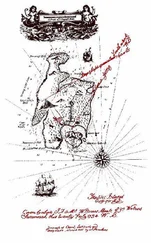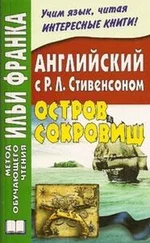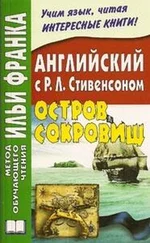It was strange that Bit-Yakin was not mentioned in any of the legends of Alkmeenon (было странно, что Бит-Якин не был упомянут ни в одной из легенд об Алкминоне). Obviously he had come to the valley after it had been deserted by the original inhabitants (явно, он пришел в долину, после того как она была покинута первоначальными обитателями) — the manuscript indicated as much (именно на это и указывала рукопись; as much — именно: «настолько» ) — but it seemed peculiar (однако казалось странным) that the priests who came in the old days to consult the oracle had not seen the man or his servants (что жрецы, которые приходили в прежние дни за советом к оракулу, не видели этого человека или его слуг). Conan felt sure that the mummy and this parchment was more than a hundred years old (Конан был уверен, что мумии и этому пергаменту более сотни лет; to feel sure — быть уверенным ). Bit-Yakin had dwelt in the valley when the priests came of old to bow before dead Yelaya (Бит-Якин /уже/ жил в долине, когда жрецы в прежнее время приходили преклоняться перед мертвой Елаей; to dwell — жить, проживать; to bow — наклонять; преклоняться ). Yet concerning him the legends were silent (тем не менее, о нем легенды умалчивали; concerning — касательно, относительно; to be silent — молчать: «быть безолвным» ), telling only of a deserted city, haunted only by the dead (рассказывая только о брошенном городе, населенном лишь мертвыми; to haunt — навещать; жить, обитать /о духах/ ).
mention [ˈmenʃən], peculiar [pɪˈkju:lɪə], bow [bau]
It was strange that Bit-Yakin was not mentioned in any of the legends of Alkmeenon. Obviously he had come to the valley after it had been deserted by the original inhabitants — the manuscript indicated as much — but it seemed peculiar that the priests who came in the old days to consult the oracle had not seen the man or his servants. Conan felt sure that the mummy and this parchment was more than a hundred years old. Bit-Yakin had dwelt in the valley when the priests came of old to bow before dead Yelaya. Yet concerning him the legends were silent, telling only of a deserted city, haunted only by the dead.
Why had the man dwelt in this desolate spot (почему этот человек жил в этом пустынном месте; to dwell ), and to what unknown destination had his servants departed after disposing of their master's corpse (и в какой неизвестный пункт назначения отправились его слуги, избавившись от трупа своего хозяина; destination — назначение; пункт назначения; цель;to dispose of — отделаться, избавиться от )?
Conan shrugged his shoulders and thrust the parchment back into his girdle (Конан пожал плечами и засунул пергамент обратно за пояс; to shrug one’s shoulders — пожимать плечами; to thrust — колоть; засовывать ) — he started violently (он сильно вздрогнул; to start — начинать; вздрагивать ), the skin on the backs of his hands tingling (при этом кожу на тыльной стороне рук стало покалывать; back of the hand — тыльная сторона ладони;to tingle — испытывать покалывание; покалывать ). Startingly, shockingly in the slumberous stillness (пугающе, потрясающе в сонной тиши; to start — начинать; вспугивать ), there had boomed the deep strident clangor of a great gong (прогрохотал низкий резкий металлический звон большого гонга; clangor — резкий металлический звук )!
desolate [ˈdesəlɪt], violent [ˈvaɪələnt], slumberous [ˈslʌmbərəs]
Why had the man dwelt in this desolate spot, and to what unknown destination had his servants departed after disposing of their master's corpse?
Conan shrugged his shoulders and thrust the parchment back into his girdle — he started violently, the skin on the backs of his hands tingling. Startingly, shockingly in the slumberous stillness, there had boomed the deep strident clangor of a great gong!
He wheeled, crouching like a great cat, sword in hand (он резко обернулся, пригнувшись, как огромный кот, с мечом в руке; to wheel — катить; /резко/ оборачиваться; to crouch — припадать к земле; согнуться, сжаться ), glaring down the narrow corridor from which the sound had seemed to come (всматриваясь в узкий коридор, из которого, казалось, донесся этот звук; to glare — сверкать; пристально или сердито смотреть; to come — приходить; доноситься ). Had the priests of Keshia arrived (прибыли жрецы Кеши)? This was improbable, he knew (это было невероятно, он знал); they would not have had time to reach the valley (они не успели бы добраться до долины). But that gong was indisputable evidence of human presence (но этот гонг был бесспорным свидетельством человеческого присутствия).
arrive [əˈraɪv], improbable [ɪmˈprɔbəbl], indisputable [ˌɪndɪˈspju:təbl]
He wheeled, crouching like a great cat, sword in hand, glaring down the narrow corridor from which the sound had seemed to come. Had the priests of Keshia arrived? This was improbable, he knew; they would not have had time to reach the valley. But that gong was indisputable evidence of human presence.
Conan was basically a direct-actionist (Конан был по существу человеком решительных действий; basically — в своей основе; по существу;direct action — прямое действие, решительные действия;direct — прямой; непосредственный; action — действие, поступок ). Such subtlety as he possessed had been acquired through contact with the more devious races (та утонченность/хитрость, которой он обладал, была приобретена благодаря контактам с более неискренними = искушенными народами; subtlety — тонкость; утонченность; хитрость, коварство;subtle — нежный; утонченный, изысканный; острый, тонкий, проницательный; умный; хитрый, коварный; devious — удаленный, отдаленный; неискренний, лживый ). When taken off guard by some unexpected occurrence (когда какое-то неожиданное происшествие застигало его врасплох; off guard — врасплох ), he reverted instinctively to type (он инстинктивно возвращался к типичному поведению /варвара/; to type — быть типичным представителем; type — типичный; type — тип; представитель, образчик ). So now, instead of hiding or slipping away in the opposite direction as the average man might have done (так и сейчас, вместо того, чтобы спрятаться или ускользнуть в противоположном направлении, как, вероятно, поступил бы обычный человек; to slip away — ускользнуть; average — средний; нормальный, обычный ), he ran straight down the corridor in the direction of the sound (он побежал прямо по коридору в направлении звука). His sandals made no more sound than the pads of a panther would have made (его сандалии производили не больше шума, чем /произвели бы/ лапы пантеры); his eyes were slits, his lips unconsciously asnarl (его глаза были = превратились в щелочки, его губы бессознательно /сложились/ для рыка; snarl — рык, рычание ). Panic had momentarily touched his soul at the shock of that unexpected reverberation (тревога на мгновение коснулась его души при потрясении от этого неожиданного рокота), and the red rage of the primitive that is wakened by threat of peril (а ярость первобытного человека с налитыми кровью глазами, которая пробуждается при угрозе опасности; red — красный; налитый кровью /о глазах/ ), always lurked close to the surface of the Cimmerian (всегда таилась близко к поверхности киммерийца = неглубоко под наружностью киммерийца; surface — поверхность; наружность ).
Читать дальше











